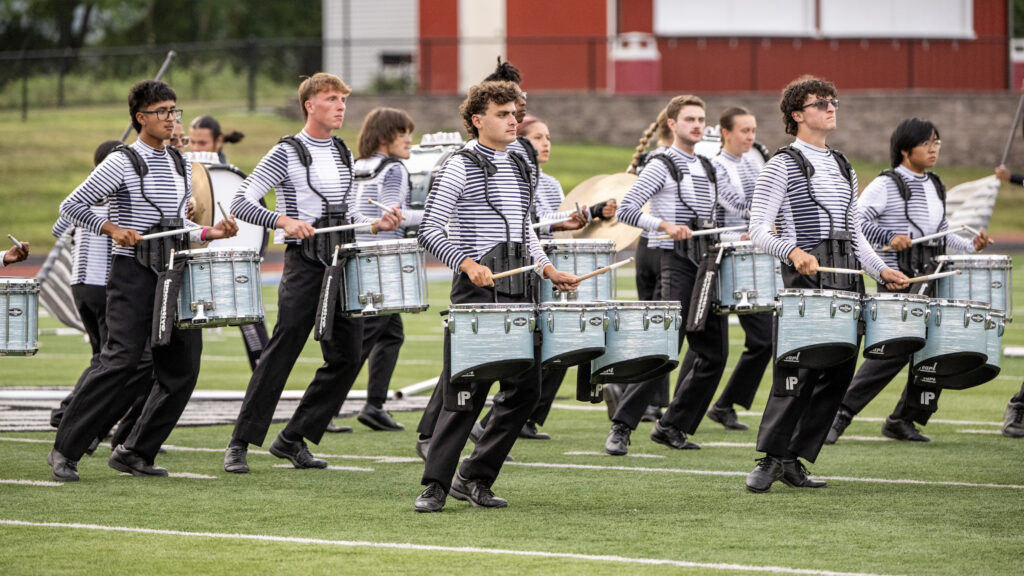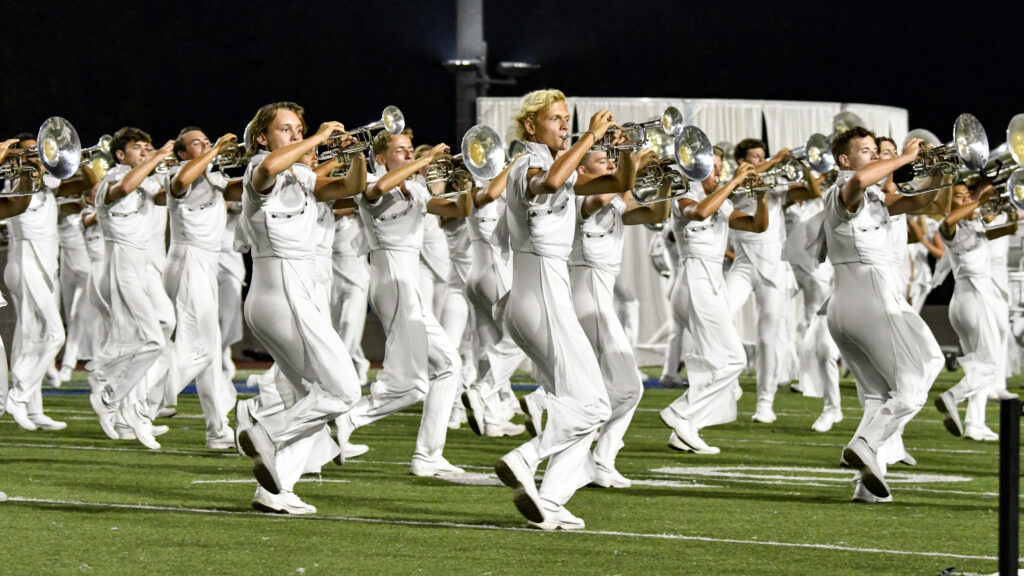
I attended a party on Saturday night, a victory party to celebrate the fifth consecutive win of the University of Tennessee’s chapter of Phi Mu Alpha (along with Zeta Tau Alpha) in the campus-wide “All-Sing” competition. As I sat conversing quietly with a friend, a veteran of Scenic City 2002, he started thinking back over their winning performance that evening.
“I had the most incredible feeling when we finished,” he told me, glancing at the tipsy revelers all around us, “something that could never be duplicated by anything you could drink or shoot. It was like you get when you’ve just finished marching a show, the crowd’s screaming, and you know you’ve just played your heart out. It’s that vibe that comes from everyone giving it all they’ve got to put on the best possible show.
“I, of course, knew immediately what he was talking about, as will most of you. When people ask me about my most incredible experiences in drum corps, what leaps to mind are the performances — being the first corps to march at the new INVESCO Field at Mile High in Denver in 2002, the almost unbelievable synchronization of the lightning and our show at Philadelphia in 2001, both shows on my birthday, DCM finals in 2002, Phantom’s home show in 2001, and of course, getting to conduct at Quarterfinals in 2002.
What sets these shows in particular apart from the 30 or shows I marched each summer was the emotion involved, the dynamic from player to player and between performer and audience member. When it hits, the vibe is positively electric and it’s such a privilege to be a part of.
As a conductor you are in many ways the focus of that current of energy, and to have some hand in creating and shaping the dynamic coming off the field is a privilege beyond comparison. As a journalism major I have spent a lot of time the past few years studying the many ways people communicate with one another, and the more I study it the more firmly convinced I am that music is one of those methods of communication.
This may seem an obvious observation to you or I, but to the masses of the world who rarely are exposed to music beyond the Top 40, music as a form of communication is a radical concept. And certainly that’s understandable; if you remove the words from most pop songs (or even if you leave them in), it’s hard to get much of a grasp on what the performer intends to communicate to us, the listener; the player or singer is remote, and the listener feels removed from any sense of immediacy.
This is why people still pay hundreds of dollars to see their favorite artist live! As performers, our job is to make the music come alive, to give it significance and meaning to the listener or watcher. It’s not an easy task, but when we accomplish it, we weave a spell of musical magic that enchants performer and audience member alike. Listen to almost any drum corps show, even a recording, and you can





